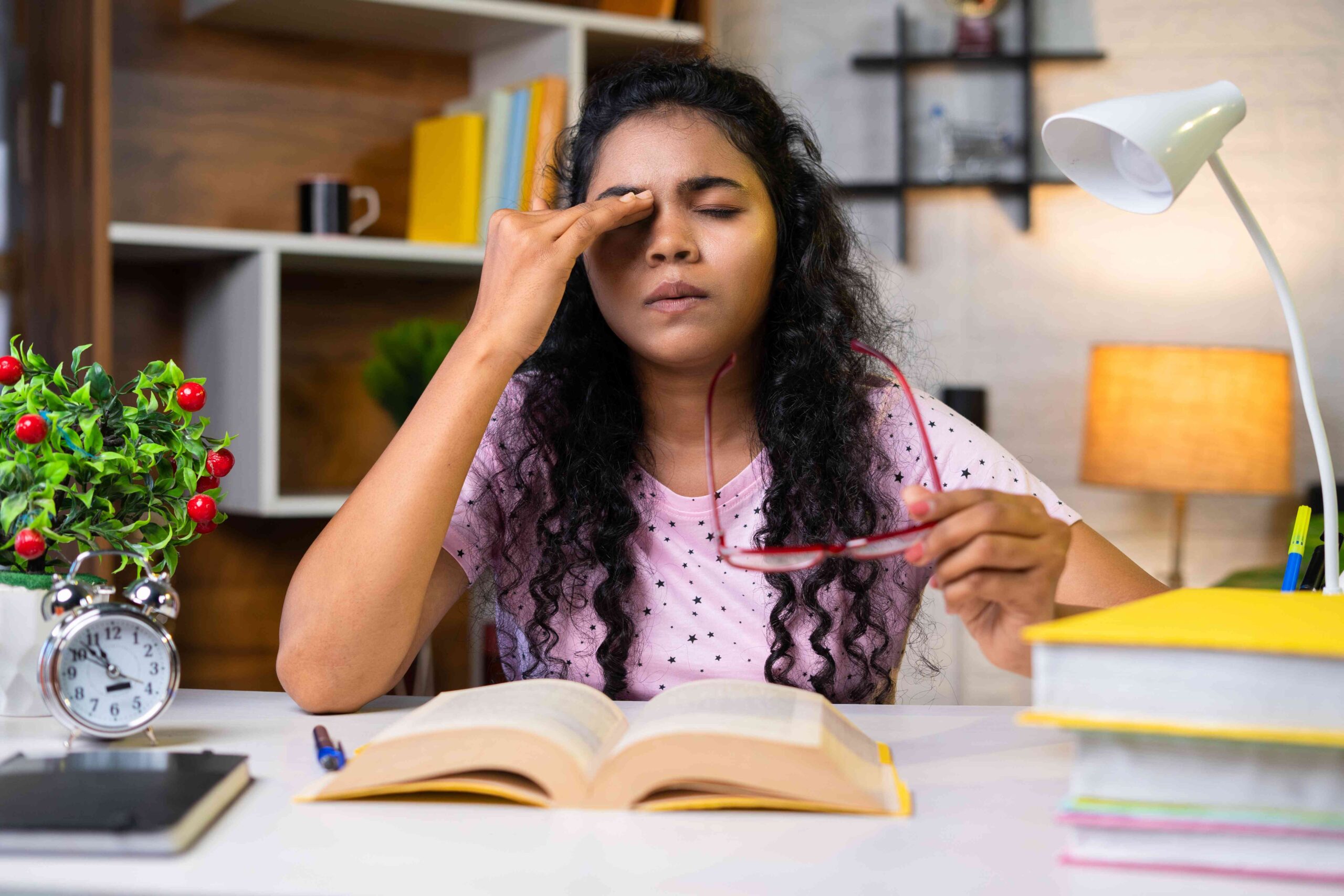www.health.com
lakshmiprasad S / Getty Images
‘ title=”person rubbing itchy eyes”>
lakshmiprasad S / Getty Images
Medically reviewed by Johnstone M. Kim, MDMedically reviewed by Johnstone M. Kim, MD
Itchy eyes (also known as ocular pruritus) can happen for several reasons, ranging from allergies and environmental irritants to infections and underlying conditions that affect the eyes or eyelids.
Whether acute (short-term) or chronic (long-term), itchy eyes can be an uncomfortable experience and affect your quality of life. However, home remedies and medications can often treat the discomfort and relieve symptoms.
What Do Itchy Eyes Feel Like?
Itchy eyes may feel like a tickling, burning, or scratchy sensation that prompts an urge to rub or scratch your eyes for relief. Your eyes may feel dry or gritty, or you may think that something is in your eye.
The itchiness can also come and go, worsen during certain times of the day or specific activities, or become more persistent.
Several symptoms can occur alongside itchy eyes, including:
- Red eyes
- Swollen or puffy eyelids
- Watery eyes
- Sticky or stringy eye discharge
- Crusting on the eyelids or eyelashes
- Dandruff-like flakes on the eyelashes
- Sensitivity to light
- Blurry vision
Potential Causes
Itchy eyes have many possible causes, including environmental irritants, infections, and underlying eye or skin conditions. Identifying the underlying cause of eye itchiness is the first step in finding the appropriate treatment and getting much-needed relief.
Allergies
Allergies are one of the most common causes of itchy eyes, affecting up to 40% of people in the United States. Allergic conjunctivitis is the medical term for allergies affecting the eyes. Exposure to allergens, such as pet dander, pollen, and dust mites, causes the immune system to release histamine, which triggers allergy symptoms.
Histamine causes blood vessels in the conjunctiva—the thin, protective membrane covering the inner eyelid and whites of the eyes (called the sclera)—to swell up. Along with intense itchiness, allergies can also cause such as:
- Red or burning eyes
- Watery eyes
- Puffy eyelids
- Runny nose
- Sneezing
- Rash
Pink Eye
Conjunctivitis—more commonly known as pink eye—causes inflammation of the conjunctiva, the thin, transparent layer of tissue that covers the white part of the eye and inner eyelid. When the conjunctiva becomes inflamed, small blood vessels become more visible, causing the whites of the eyes to appear reddish or pink.
Bacteria and viruses can cause infectious conjunctivitis, which is highly contagious and can quickly spread from person to person. In addition to red or pink-colored eyes and itchiness, conjunctivitis causes symptoms like:
- A gritty sensation in the eye
- Swollen, puffy eyelids
- Feeling like something is in your eye
- Watery eyes
- Burning sensation in the eye
- Eye discharge (mucus or pus) that can form a crust on the eyelashes during sleep
Blepharitis
Blepharitis causes inflammation of the eyelids, usually along the edges where your eyelashes grow. The condition leads to redness, swelling, and itchiness.
Blepharitis can develop when tiny oil glands in the eyelids become clogged or when a build-up of bacteria at the base of the eyelashes causes dandruff-like flakes to form. Sometimes, an over-population of microscopic face mites (called Demodex) that live inside eyelash follicles can lead to blepharitis.
While this condition is not contagious, it often becomes chronic with recurring symptom flares. Common blepharitis symptoms include:
- Itchy, burning, or stinging eyes
- Watery eyes
- Red and swollen eyelids
- Sensitivity to light
- Foamy tears
- Dry eyes
- Crusty eyelashes or eyelids after waking up
Anyone can develop blepharitis, but it is more common in people with dandruff, rosacea, oily skin, and allergies.
Dry Eye
Dry eye occurs when your eyes don't produce enough tears or dry up too quickly to keep the eyes well-lubricated. A lack of lubrication and moisture on the surface of your eyes causes irritation, itchiness, and discomfort. Symptoms of dry eye can include:
- Scratchy, gritty feeling in the eyes
- Stringy mucus in or around the eyes
- Blurry vision, especially during certain activities like reading
- Red or watery eyes
- Difficulty wearing contact lenses
- Stinging, burning sensation in the eyes
Dry eye is most common in people age 50 and older, people assigned female at birth, people who wear contact lenses, and people with certain autoimmune disorders, such as Sjögren syndrome (SS) and lupus. Deficiencies in vitamin A and omega-3 fatty acids can also increase the risk of dry eye.
Computer Vision Syndrome
If you spend hours a day on a computer or other digital devices, your eyes can become itchy, tired, and dry. Typically, people blink 18-22 times per minute, which helps keep the eyes well-lubricated.
However, people blink only 3-7 times per minute using digital screen devices like computers and cell phones. This strains your eyes and leads to computer vision syndrome (CVS), or digital eye strain.
This condition causes a group of eye-related symptoms, such as:
- Watery eyes
- Itchiness
- Eye dryness
- Red eyes
- Blurred or double vision
- Fatigued eyes
- Sensitivity to light
- Headaches
- Sore neck or back
Meibomian Gland Dysfunction
Meibomian gland dysfunction (MGD) is a common condition that affects the oil glands lining the top and bottom of your eyelids. These glands produce an oily substance (called meibum) that coats the eyes and prevents tears from evaporating too quickly.
MGD develops when thick secretions block the glands, preventing a normal flow of meibum. The meibum that does flow through the glands may become crusty or work ineffectively, causing eye irritation and symptoms such as:
- Itching
- Grittiness or dryness
- Burning and redness
- Crusty discharge
- Watery eyes
- Light sensitivity
- Blurred vision
- Chalazions (painless cysts) or styes on the eyelid
Less Common Causes
While less common, the following factors can also play a role in developing itchy eyes:
- Contact lens use: Wearing contact lenses for extended periods or wearing unsanitized content lenses can cause eye irritation and itching.
- Certain medications: Antihistamines, antidepressants, and corticosteroids can reduce tear production, leading to dry, itchy eyes.
- Environmental irritants: Exposure to smoke, pollution, or chemicals in the air or swimming pools (e.g., chlorine) can cause itchy and irritated eyes.
- Eyelid dermatitis: Skin conditions like eczema can affect the eyelids, leading to itchy, inflamed, and flaky skin.
When to Contact a Healthcare Provider
If you're experiencing persistent itchy eyes that do not improve with self-care measures, seeing an eye care provider can help. It's also a good idea to see your provider if your itchy eyes occur alongside the following symptoms:
- Swollen eyelids
- Thick, green, or pus-like eye discharge
- Sensitivity to light
- Vision changes
- Red and painful eyes
- Joint pain or stiffness
- Dry mouth
- Bulging eyes or drooping eyelids
An ophthalmologist (a doctor who specializes in diagnosing and treating vision problems) can evaluate your eyes, diagnose the underlying cause of itchiness, and recommend appropriate treatment.
They will perform a comprehensive eye examination, which may include tests like a slit-lamp exam, to help identify the underlying cause of your symptoms. For a slit-lamp exam, the provider will put a drop into your eye and then shine a bright light with a microscope into your eye to see your eyes and eyelids.
How To Treat Itchy Eyes
Your exact treatment plan for itchy eyes will depend on the underlying cause of your symptoms but may generally include home remedies, medications, procedures, or a combination of all three.
Home Remedies
Home remedies can soothe itchy eyes, and some self-care strategies may reduce or prevent further irritation and itchiness. Your provider may recommend the following remedies:
- Use cold compresses: A cool, damp cloth on the eyes can reduce inflammation and soothe itching.
- Try artificial tears: Over-the-counter (OTC) lubricating eye drops can hydrate the eyes and relieve dryness.
- Apply warm compresses: If you have dandruff-like flakes or crust on your eyes, applying a warm compress to them and gently wiping the cloth back and forth can help remove the crust or clear oil blockages in tear ducts.
- Avoid allergens: If allergies are causing itchy eyes, avoiding or limiting your exposure to allergens like pet dander or pollen can help reduce eye itchiness.
- Practice eye hygiene: Carefully wash your eyelids daily with diluted baby shampoo and warm water, and wash your eyebrows, hair, and scalp with antibacterial soap to keep bacteria levels in control.
- Keep hands clean: Washing your hands regularly and avoiding touching or rubbing your eyes can worsen irritation and inflammation and increase the risk of infection.
Medications
If home remedies are ineffective or you have an eye infection or eye pain that causes itching, your healthcare provider may recommend over-the-counter or prescription medications, such as:
- Antihistamine eye drops: These can help reduce allergy-related eye inflammation and itching.
- Mast cell stabilizer eye drops: Prescription eye drops, such as Elestat (Epinastine) or Cromlom (cromolyn), prevent mast cells (white blood cells that cause inflammation) from causing allergy-related eye swelling and itching.
- Steroid eye drops: Prescription steroid eye drops, such as Lotemax (Loteprednol 0.5%) and Alrex (Loteprednol 0.2%), relieve itching when inflammation is severe.
- Antibiotic eye drops: Bacterial conjunctivitis (pink eye) may require treatment with antibiotic eye drops.
Procedures
Medical procedures may be necessary to treat some causes of itchy eyes. These procedures include:
- Punctal plugs: Inserts plugs into the tear ducts to help people with dry eyes retain moisture in the eyes
- Meibomian gland expression: Involves a healthcare provider using tools to gently massage and express the meibomian (oil) glands to clear blockages and promote normal oil secretion
- Surgery: Repairs the eyelids to keep the eyes well-lubricated if your eyelids are too loose or cause tears to drain too quickly from the eyes
How To Prevent Itchy Eyes
Itchy eyes can be frustrating and uncomfortable, but there are things you can do to help your eyes feel better and prevent future discomfort, such as:
- Avoiding irritants: Limit exposure to eye irritants, such as smoke, wind, and chemicals
- Using a humidifier: Place a humidifier in your home to keep the air moist and prevent dry eye
- Taking screen breaks: Try the "20-20-20" strategy for screen breaks: Every 20 minutes, shift your eyes away from a screen and look at an object at least 20 feet away for at least 20 seconds.
- Staying hydrated: Drink at least eight glasses of water daily
- Protecting your eyes: Wear wrap-around sunglasses outdoors to protect your eyes from outdoor allergens, wind, and dust
Are There Complications?
While most conditions that cause itchy eyes are relatively mild, rubbing your eyes too much can cause long-term damage. While rubbing your eyes may provide temporary relief, excessive rubbing can weaken the cornea and lead to keratoconus.
Keratoconus is an eye disease where the cornea (the clear, dome-shaped front surface of the eye) thins and bulges into a cone-like shape. This abnormal curvature can cause blurred vision, glare, and sensitivity to light.
A Quick Review
Allergies, dry eye, digital eye strain, and several other eye conditions can cause itchy eyes. While dismissing itchy eyes as a minor inconvenience may be tempting, proper diagnosis and treatment can help relieve symptoms and protect your eyes long-term.
Treatments like OTC eye drops and cool compresses can help provide immediate relief, while prescription eye drops and medical procedures can treat symptoms when home remedies are ineffective.
For more Health.com news, make sure to sign up for our newsletter!
Read the original article on Health.com.














